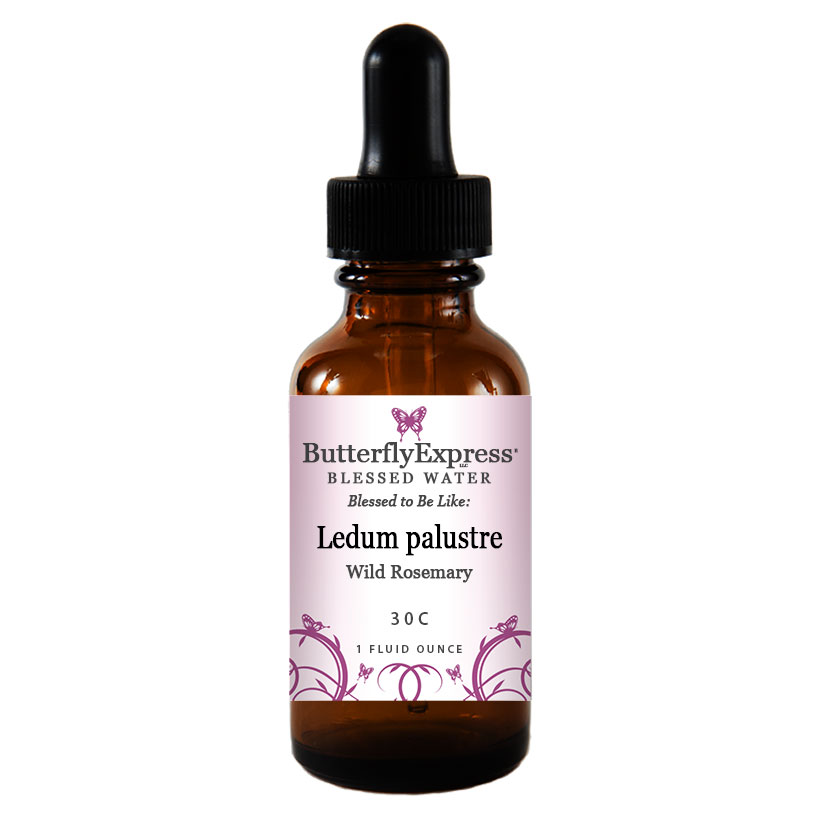Ledum palustre
(Wild Rosemary)
Ledum affects the fibrous tissue of joints, especially ankles, tendons, heels, and skin and should be considered for arthritis and rheumatic conditions, most often those in which troubles began in the feet and moved upwards. The affected parts first become purple and puffy and eventually appear emaciated. A keynote of Ledum is that the person has a general lack of body heat—they are cold all of the time. Ledum prevents sepsis and infection and should routinely be given when a person is bitten or stung or when a puncture would has occurred.
MENTALSDifficulty thinking and comprehending; Misanthropy and dissatisfaction with others, particularly men; Strange sensations of confusion of mind resembling intoxication after eating; Anxiety;
CONDITIONS: Anal fissures; bites; bruises; black eyes; gouty paines shoot through the foot and limb and into joints; puncture wounds; stings and bites; tetanus; ill effects of vaccination; wounds of all sorts; soles of feet so painful they can hardly step down on them; red gushing hemorrhages
COMMENTS AND INDICATIONS: Acts more effectively on small joints such as fingers and toes than on larger joints of the body.

